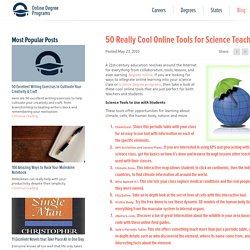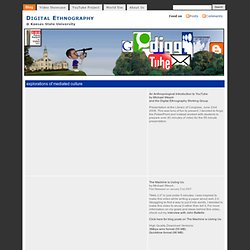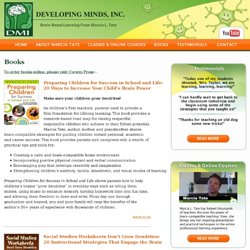

How we will learn. The Super Book of Web Tools for Educators. The Super Book of Web Tools for Educators A comprehensive introduction to using technology in all K-12 classrooms.

There are teachers around the world who want to use technology in their classrooms, but they’re just not sure where to start. That’s why eleven prominent bloggers, teachers, and school administrators got together to create this free ebook. Introduction: pages 2-3 An Administrator's View: pages 4-7 Elementary School: pages 8-25 Middle School: pages 26-35 High School: pages 36-42 ESL/ELL: pages 43-46 Teaching Online: pages 47-50 Connect Via Skype: pages 51-61 Elementary School Blogging: pages 62-65 Alternative Ed Tech: pages 66-68 Social Media for Educators: pages 69-71 Contributors Steven Anderson Adam Bellow Richard Byrne George Couros Larry Ferlazzo Lee Kolbert Patrick Larkin Cory Plough Beth Still Kelly Tenkely Silvia Rosenthal Tolisano.
The 100 Best Education Blogs on the Internet - Bloggers. By Will Roby Education blogs are some of my favorite blogs to read.

Generally, teachers, librarians, and educators are some of the better writers in the blog universe, and since research and libraries are near and dear to my heart, I'm always fascinated by the stories and links these bloggers provide. Here are 100 of the best education blogs online, categorized and with mini reviews. If you can't find the educational tools and stories you're looking for from among these 100 great blogs, you may be out of luck. Best Education Blogs Written by Teachers These ten teachers run some of the more entertaining and informative blogs about their careers in education. 50 Really Cool Online Tools for Science Teachers. A 21st-century education revolves around the Internet for everything from collaboration, tools, lessons, and even earning degrees online.

If you are looking for ways to integrate online learning into your science class or science degree programs, then take a look at these cool online tools that are just perfect for both teachers and students. Science Tools to Use with Students These tools offer opportunities for learning about climate, cells, the human body, nature, and more. ChemiCool. Share this periodic table with your class for an easy to use tool with information on each of the specific elements.GPS Activities and Lesson Plans. APPitic - 1,300+ EDUapps. GlassGiant.com - Make free pictures for your Facebook Photos! Free animations, animated gifs animals people most subjects. Digital Ethnography. Information R/evolution by Michael Wesch October 12th 2007 This video explores the changes in the way we find, store, create, critique, and share information.

This video was created as a conversation starter, and works especially well when brainstorming with people about the near future and the skills needed in order to harness, evaluate, and create information effectively. High Quality WMV download: Quicktime: If you are interested in this topic, check out Clay Shirky's work and David Weinberger's Everything is Miscellaneous. Wkispaces. Edmodo. QR-Code Generator. Alpha: Computational Knowledge Engine.
Visual Dictionary Online. SchoolTube - Video Sharing For Students & Teachers. WatchKnowLearn - Free Educational Videos for K-12 Students. Developing Minds. To order books online, please visit Corwin Press » Preparing Children for Success in School and Life: 20 Ways to Increase Your Child’s Brain Power Make sure your children grow dendrites!

As children’s first teachers, parents need to provide a firm foundation for lifelong learning. This book provides a research-based road map for raising respectful, responsible children who achieve to their fullest potential. Marcia Tate, author, mother and grandmother shares brain-compatible strategies for guiding children toward personal, academic, and career success. Creating a calm and brain-compatible home environment Incorporating positive physical contact and verbal communication Encouraging play that develops creativity and imagination Strengthening children’s auditory, tactile, kinesthetic, and visual modes of learning Return to top Social Studies Worksheets Don’t Grow Dendrites: 20 Instructional Strategies That Engage the Brain Bring social studies to life in your classroom! Fluid Environments for Life-Long Learning.
Creating a Fluid Environment - home.